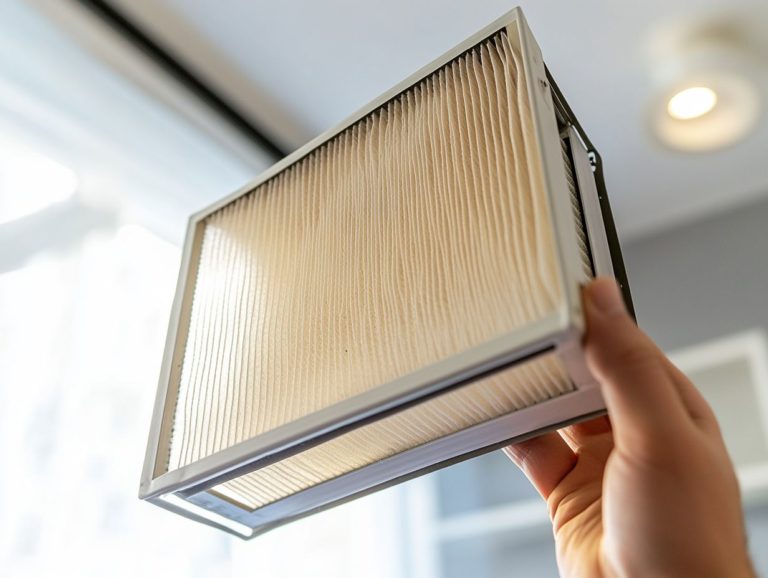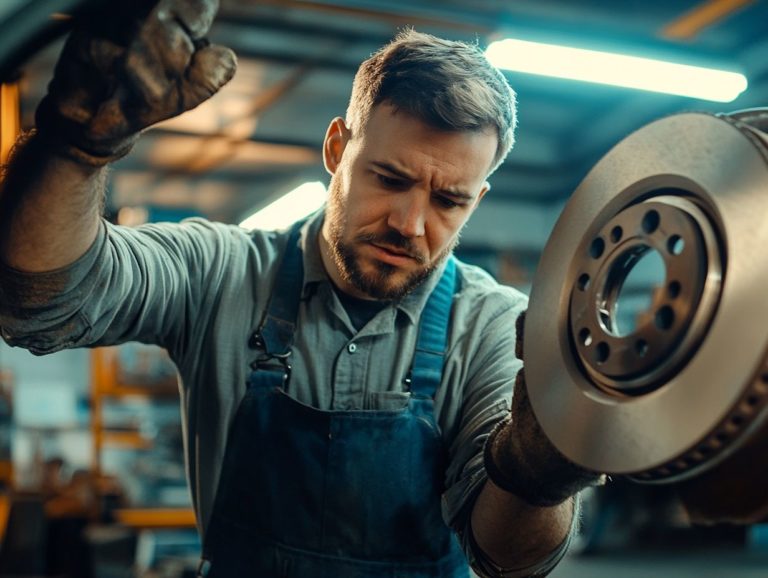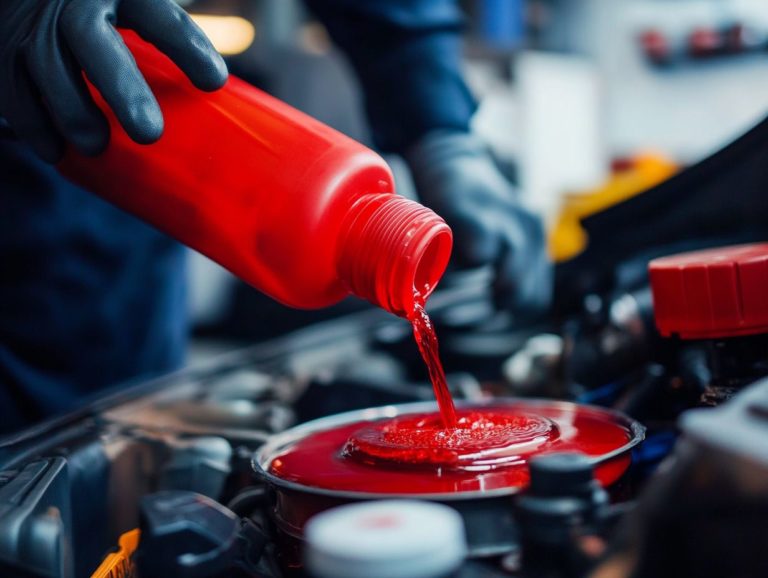How to Protect Your Car from Rust
Rust can truly be a car owner s worst nightmare, gradually undermining your vehicle’s integrity and aesthetics. Let s dive in to help safeguard your investment.
It s essential to grasp what rust is and the common culprits that contribute to its formation in order to prevent it effectively.
This guide will cover the essentials of rust protection, including routine maintenance and protective coatings, recognizing early signs, and taking decisive action.
You ll also discover long-term strategies designed to keep your car looking pristine for years to come.
Contents
Key Takeaways:
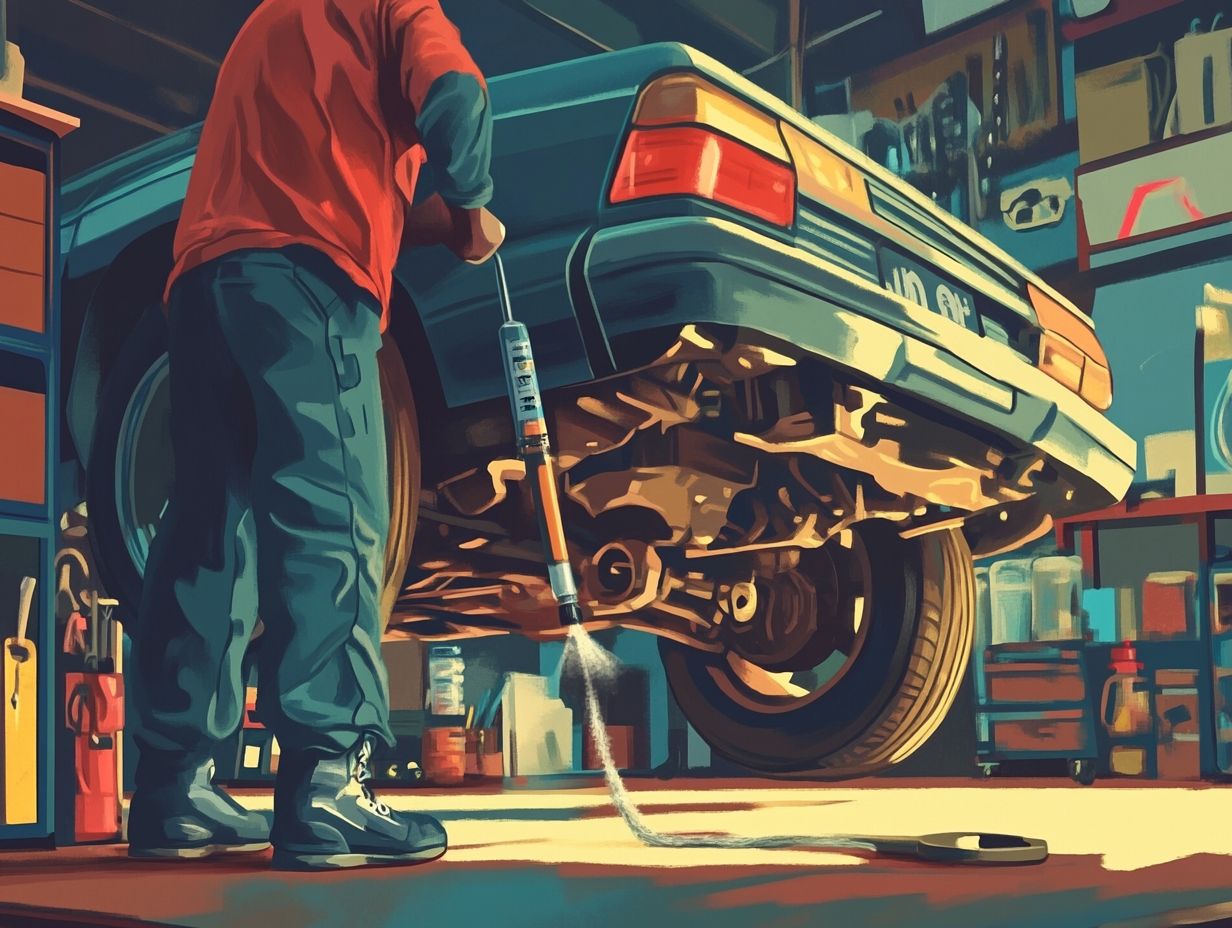
- Regular cleaning and maintenance are crucial in preventing rust on your car. Make sure to wash your car regularly and clean any debris or dirt that could lead to rust formation.
- Protective coatings, such as wax or rust inhibitors, can provide an extra layer of defense against rust. Be sure to apply these coatings correctly and regularly for maximum effectiveness.
- It s important to address rust as soon as it is identified to prevent it from spreading and causing further damage. Follow the necessary steps for removing rust and consider seeking professional help for severe cases.
Act now to protect your car from rust and avoid costly repairs!
Understanding Rust and Its Causes
Understanding rust and its causes is essential for any vehicle owner who wishes to maintain the longevity and structural integrity of their car. Rust is the result of iron rusting when it meets moisture and chemicals, particularly salt and water.
If left unchecked, this process can cause substantial damage. It impacts not only the car’s exterior but also the underbody and mechanical systems. By recognizing these factors, you can take proactive steps to prevent rust, ensuring your vehicle remains safe and functional for many years ahead.
What is Rust?
Rust manifests as a reddish-brown corrosion on the surface of iron and its alloys, such as steel, resulting from a chemical reaction with moisture and oxygen that leads to rusting.
When water is present, iron engages with oxygen from the environment, forming iron oxide commonly known as rust. This process becomes even more pronounced in the presence of salt and other pollutants that can hasten the corrosion rate. Moisture serves as an electrolyte, facilitating the transfer of electrons and ensuring that the oxidation of iron continues unabated.
Over time, this corrosion can inflict significant damage on the surface, compromising the structural integrity of your vehicles, particularly when they face harsh environmental conditions.
As rust spreads, it not only tarnishes the appearance of your vehicle but also weakens essential components, potentially resulting in costly repairs if left unaddressed.
Common Causes of Rust on Cars
Common causes of rust on cars include prolonged exposure to moisture, the accumulation of salt especially during winter and contact with various chemicals that can accelerate corrosion.
These factors collaborate to create a perfect storm for rust formation. For instance, if your vehicle often travels on roads treated with de-icing salt during winter, that salt residue can cling to metal surfaces and trap moisture. Environmental influences like high humidity and heavy rainfall only add fuel to the fire.
Over time, even those seemingly minor scratches in the paint can expose the underlying metal to corrosive agents. Frequent exposure to chemicals such as oil, fuel, and even tree sap significantly increases the risk of oxidation, leading to extensive damage if not addressed promptly.
Preventive Measures for Rust Protection
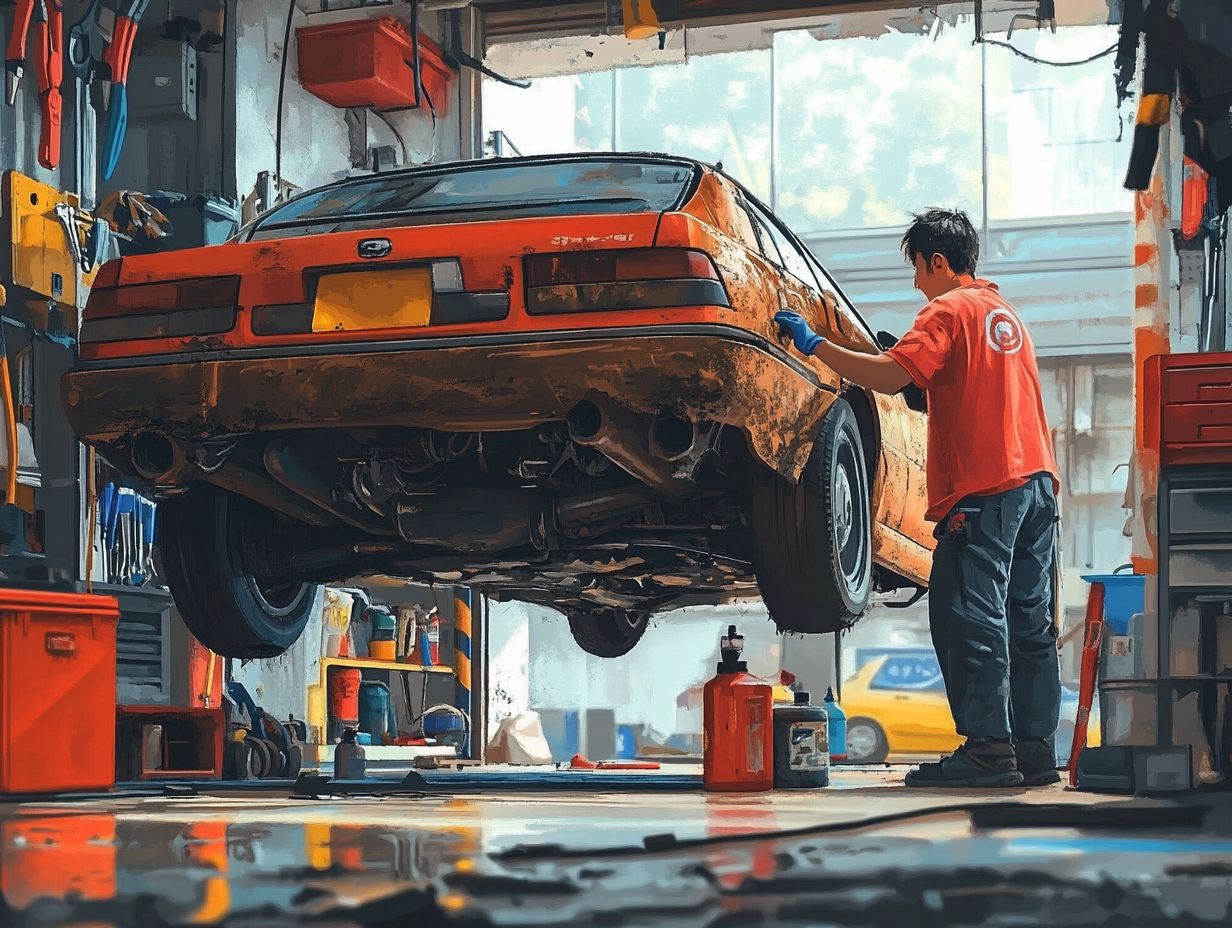
Preventive measures for rust protection are crucial for any car owner who wishes to extend the lifespan of their vehicle while keeping it looking sharp. Engaging in regular maintenance practices, such as washing the underbody and applying wax, creates a protective barrier against moisture and corrosive elements.
Investing in professional rustproofing treatments and high-quality coatings can dramatically reduce the risk of corrosion, ensuring that your car remains in optimal condition regardless of the elements it faces. By embracing these strategies, you can effectively thwart rust and safeguard your investment for the long haul.
Regular Cleaning and Maintenance
Regular cleaning and maintenance are essential for preventing rust. This ensures your vehicle lasts longer, especially in winter months when salt and moisture are high.
Wash the underbody regularly, especially after driving on salted roads. This practice removes corrosive materials that cling to metal surfaces and reduces the risk of rust.
Regular inspections help identify potential issues early, like scratches or paint chips. Addressing these can prevent rust and keep your vehicle in excellent condition for years.
Using Protective Coatings
Protective coatings are one of the best strategies to rustproof your vehicle. They provide a strong layer of defense against corrosion and environmental damage.
You have several options, each suited for different needs. For example, special paint can offer great adhesion and resistance to chemicals, making it perfect for cars in harsh conditions.
Prepare the surface well for the best results. Multiple layers of coating will enhance protection. It s also a good idea to hire professionals to apply these products correctly and safely.
Signs of Rust and How to Address Them
Recognizing the early signs of rust is crucial for any car owner. This can prevent minor issues from turning into costly repairs.
Look for signs like discoloration, bubbles on the surface, and scratches in the paint. Ignoring these can lead to significant repair expenses.
Address rust promptly with touch-up paint or professional repair services. This will keep your vehicle safe and operable for years.
Identifying Rust on Your Car
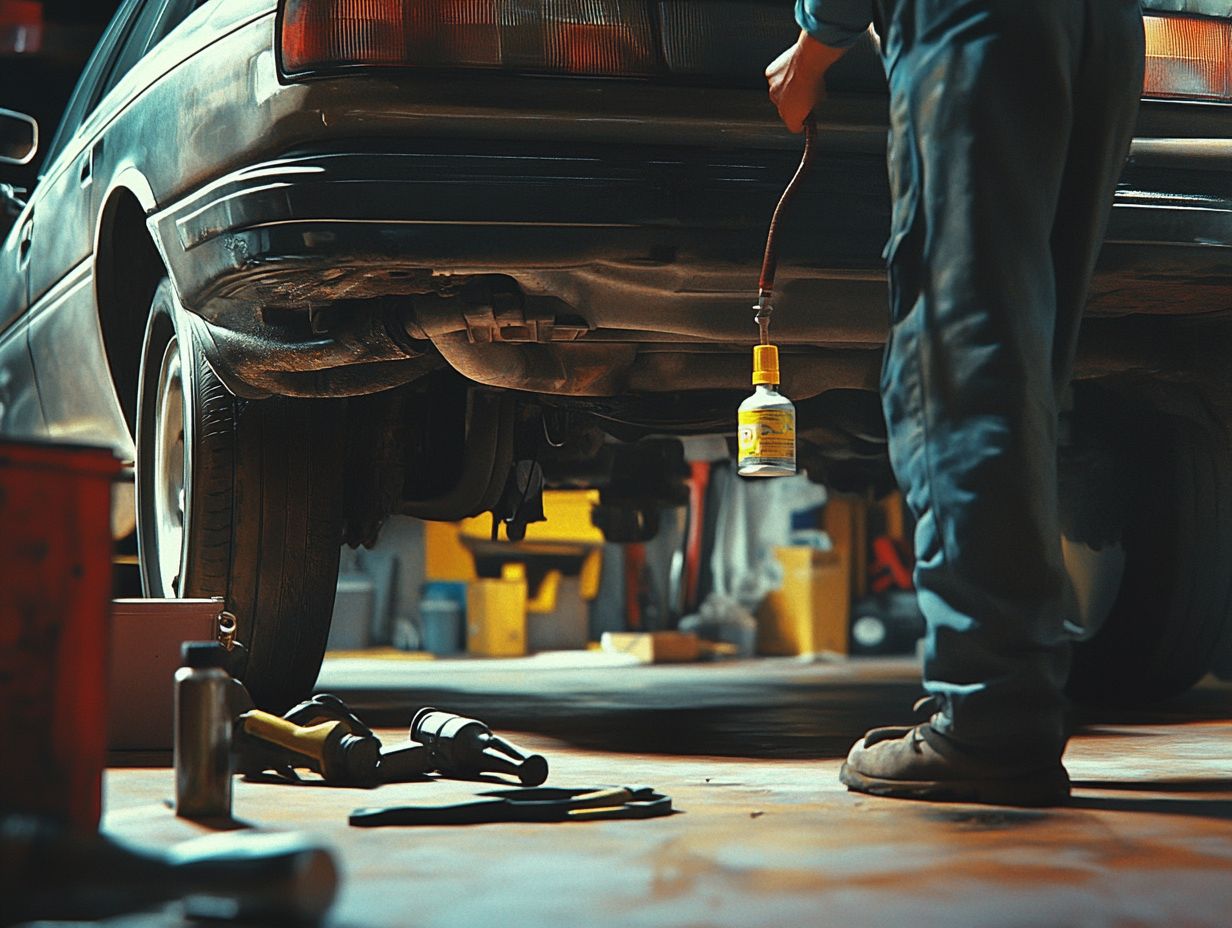
Identifying rust on your car requires careful inspections of the exterior and underbody. Look for early signs of corrosion to prevent significant damage later.
Check areas like the wheel wells and underbody, where moisture gathers. These spots are notorious for rust, especially in colder climates.
Don t forget the areas around the exhaust system and door edges. Regular checks can help you catch issues before they become serious, keeping your vehicle in top condition.
Steps for Removing Rust
Removing rust from your vehicle requires essential steps to restore its pristine condition. Start by cleaning the affected area thoroughly and then sand down the rusted surface. Finally, apply touch-up paint or protective sealants to prevent further oxidation.
To kick off the rust removal process, gather the right tools think wire brushes, sandpaper in various grits, and rust-preventing paints. Once you’ve cleared the area of any debris, meticulously sand away any loose rust to achieve a smooth finish.
After sanding, applying a rust converter can be a game changer. It stabilizes any remaining rust and prevents it from spreading. Completing the process with high-quality paint and sealant is key to protecting the repaired area.
If you re facing severe rust issues, don’t hesitate to seek professional help. Experts can employ special methods and tools that guarantee a more durable and reliable restoration, ensuring your vehicle looks its best for years to come.
Long-Term Rust Prevention Strategies
Long-term rust prevention strategies are essential for preserving your vehicle’s integrity, particularly in areas susceptible to moisture and salt during those harsh winter months.
By adopting consistent maintenance routines and employing proper storage techniques, you can greatly diminish the risk of rust formation. Additionally, knowing how to spot signs of rust on your car through regular inspections and professional treatments offers additional layers of protection against the elements, ensuring your car remains in peak condition.
Taking these proactive steps effectively safeguards your investment and enhances your vehicle’s longevity.
Tips for Protecting Your Car from Rust in the Future
To safeguard your car from future rust, embrace essential strategies like regular maintenance, meticulous cleaning, and intelligent storage. For more detailed advice, consider these tips for maintaining your car’s exterior finish that minimizes exposure to moisture and corrosive elements.
Incorporating routine inspections into your schedule gives you the power to catch early signs of rust before they escalate into more significant issues. Wash and dry your vehicle regularly, especially after exposure to road salt or brine during harsh winter months.
Consider applying high-quality wax or sealant to create a sturdy protective barrier. Parking in a garage or covering your car when parked outdoors can significantly reduce moisture accumulation.
Consulting a professional for comprehensive rust-proofing treatment can provide an extra layer of defense. This ensures your investment remains secure for years to come.
Frequently Asked Questions
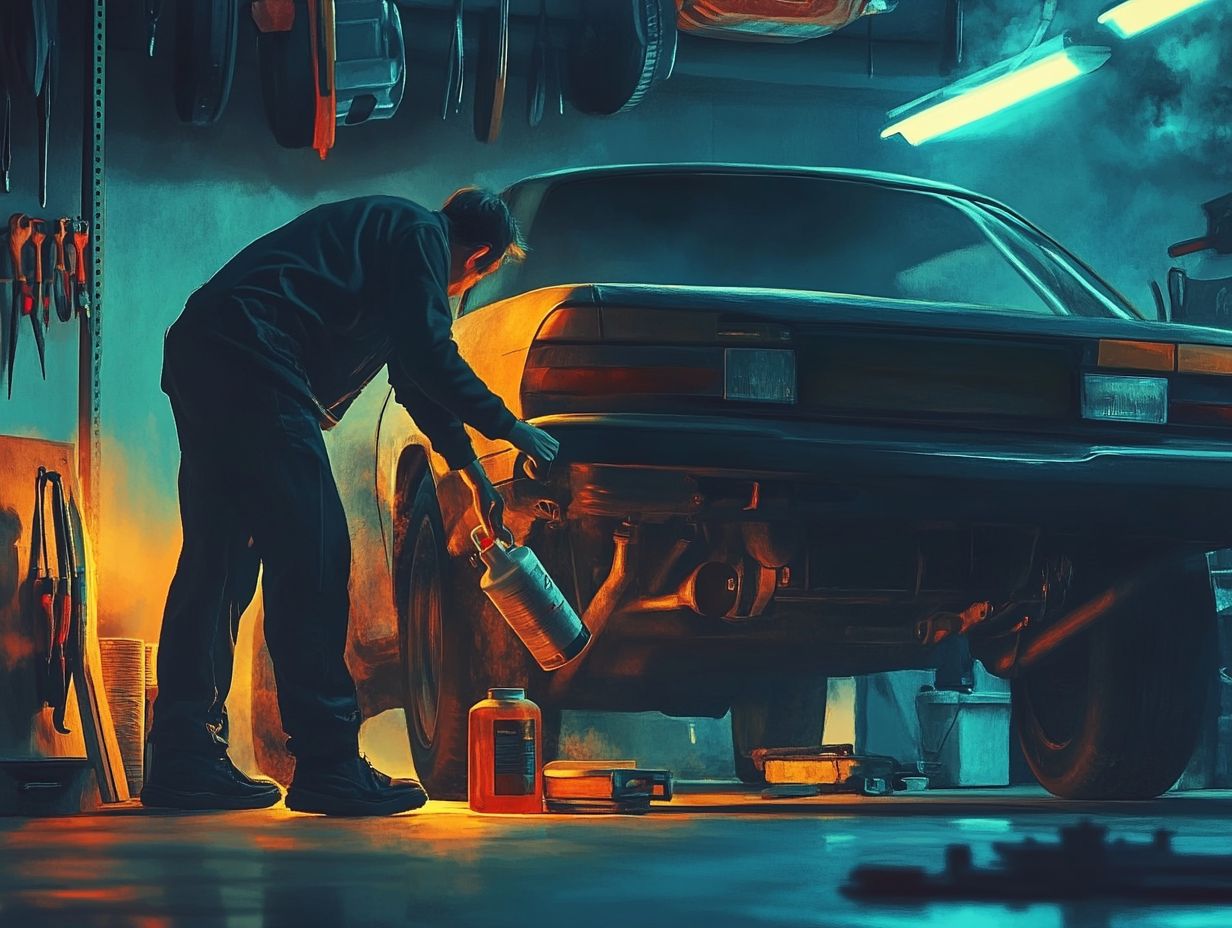
How can I protect my car from rust?
Regularly wash your car and keep it clean, especially during winter when salt and road debris can cause rust. Additionally, following these tips for maintaining car paint protection by applying a protective wax or sealant to your car’s exterior can provide a barrier against rust-causing elements.
Can rust be prevented on my car?
While it is nearly impossible to fully prevent rust, there are several steps you can take to minimize its potential. Keep your car clean, regularly inspect for chips and scratches, and proactively apply a protective coating or rust inhibitor.
What are some common causes of rust on cars?
The most common causes of rust on cars are exposure to salt, moisture, and road debris. Scratches, dents, and chips can also leave your car’s metal exposed and susceptible to rust.
Is it important to have my car’s underbody protected from rust?
Yes, it is crucial to regularly inspect and protect your car’s underbody from rust. Salt and moisture can easily accumulate and cause rust to form. Applying a rust inhibitor or protective coating can help prevent rust from forming on your car’s underbody.
What can I do if I notice rust on my car?
If you notice rust on your car, address it as soon as possible. Use a rust converter to stop the rust from spreading and then apply a protective coating to prevent future rust formation. If the rust is extensive, seek professional help from a mechanic or body shop.
How often should I wash my car to protect against rust?
Wash your car at least once a week. If you live in a place with harsh weather or use road salt, wash it more often!
Regular washes help get rid of harmful substances and prevent rust from forming. Keep your car looking great and protect your investment!

